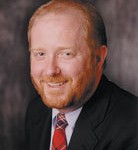 WARNING: Powerful, potent, hypocrisy crushing, non-politically correct insight from the pen (or keyboard) of R. C. Sproul, Jr. This is definitely not something for the feint of heart. – John
WARNING: Powerful, potent, hypocrisy crushing, non-politically correct insight from the pen (or keyboard) of R. C. Sproul, Jr. This is definitely not something for the feint of heart. – John
Main steam media tags the Norwegian killer as a Christian, and Christians, naturally object. What, I wonder, do our objections say about us? First, is it really inconceivable that this man is a Christian? It may be unlikely. And I may not like it. But I fear our objections run flat into our confession. We are sinners. We are capable of all manner of sin. Are we not betraying a Pelagian sensibility if we protest, “Well, we’re sinners. But not like THAT!!”
I know a man who was a believer. He was well respected, and served God’s people in a position of visible leadership. He wrote some of the most beloved songs that are still sung among God’s people. While he was a believer he started an adulterous relationship. To keep himself from being caught he murdered the woman’s husband. Could such a man be a Christian? Well, God says he, David, was God’s own friend.
Do Christians commit murder? Of course they do. Is there some magic number, somewhere between one and a hundred where we can draw a line? I think not. Christians do not, however, murder freely, continuously, without repentance. They do not give themselves over to their sins. If they do, they no longer commit such sins, but practice them, showing their profession to be less than credible. Remember that, quite apart from the reality that we are all guilty of unjustified anger against our brothers, it is likely that your church has a number of saints who have murdered- some aborting their babies, others encouraging their wives, daughters, girlfriends to abort their babies.
Which brings us to the second point. What happens when we define a Christian as broadly as “One who professes to be a Christian?” Who are we to say this man is not a Christian? The better, the more historic question is, “Who is he to say that he is?” The credibility of a person’s profession of faith did not used to and should not ever rest in the one making the profession. Rather it belongs with those who hold the keys, with the elders of the local church. Where are the elders that are ready to stand up and say, “This man is a Christian, as far as we can tell”? There are no such elders, because he is under no such authority.
 Those who object to the accuracy of the man’s profession then had better embrace a more robust ecclesiology than we are used to in our day. Without a body of elders who know you, who are in authority over you, how is your profession any better than this man’s? The loosey-goosey I-have-a-love-for-Jesus-in-my-heart, why should I need to join a church is a-historical, unbiblical and rebellious. If you cannot name the elders who will have to give answer for your soul (see Hebrews 13:17 and I Peter 5:7) then why would anyone feel compelled to accept your profession? Is a “Christian” who will accept no authority, in principle, any worse than a “Christian” who commits mass murder?
Those who object to the accuracy of the man’s profession then had better embrace a more robust ecclesiology than we are used to in our day. Without a body of elders who know you, who are in authority over you, how is your profession any better than this man’s? The loosey-goosey I-have-a-love-for-Jesus-in-my-heart, why should I need to join a church is a-historical, unbiblical and rebellious. If you cannot name the elders who will have to give answer for your soul (see Hebrews 13:17 and I Peter 5:7) then why would anyone feel compelled to accept your profession? Is a “Christian” who will accept no authority, in principle, any worse than a “Christian” who commits mass murder?
Would we not be more faithful Christians were we to confess that we too are capable of murder? Would we not profess more accurately, were we to confess that there but for the grace of God go we? Would we not confess the Lord, were we to profess that He redeems killers just like us? Would we not more confess the blood of Christ if we acknowledged His body, the church?
